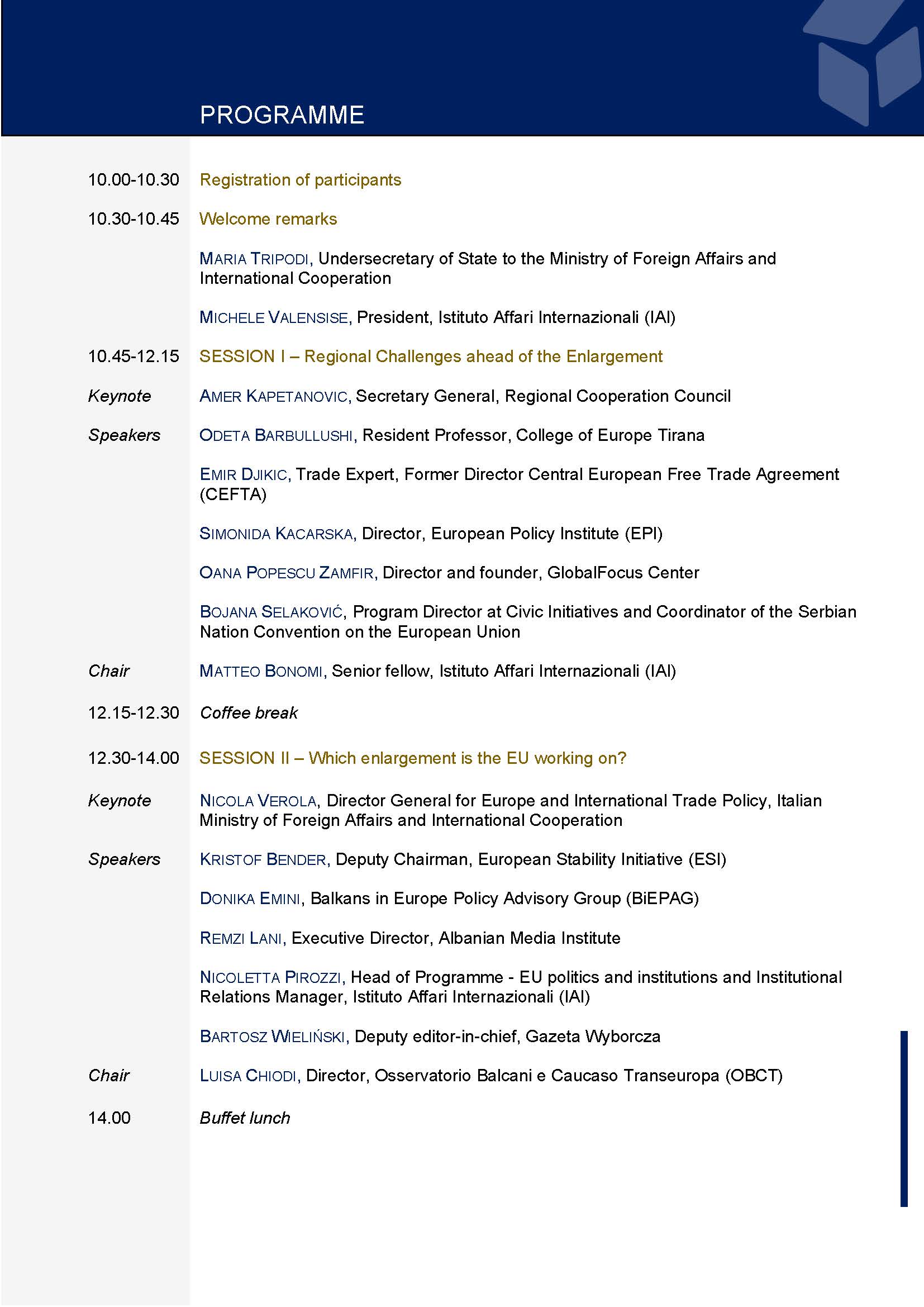L’Istituto Affari Internazionali e Osservatorio Balcani Caucaso Transeuropa, in collaborazione con il Ministero degli Affari Esteri e della Cooperazione Internazionale e con il supporto della Fondazione Compagnia di San Paolo, ospiteranno a Roma una conferenza per valutare i recenti progressi e discutere discuterà le sfide dell’integrazione dei Balcani occidentali.
L’integrazione dei Balcani occidentali è tornata all’ordine del giorno come priorità geostrategica dell’UE a seguito dell’aggressione su larga scala dell’Ucraina da parte della Russia. In questo contesto, il Consiglio europeo ha fornito nuovo impulso ai negoziati di adesione con i paesi candidati all’UE, mentre la Commissione europea ha cercato di capitalizzare lo slancio a favore dell’allargamento attraverso il Nuovo piano di crescita per i Balcani occidentali.
La conferenza “Advancing EU Enlargement: Italy’s Role and Strategic Convergence on the Western Balkans’ Integration”, che si terrà a Roma il 15 aprile 2025, valuterà i recenti progressi, discuterà le sfide ed esplorerà misure concrete per accelerare il processo salvaguardandone la sostenibilità.
Working language: English
The European integration of the Western Balkans returned to the EU agenda as a geostrategic priority in light of the disruptive dynamics triggered by Russia’s war of aggression against Ukraine. In this context, the EU has provided new impetus and made important decisions in advancing accession negotiations with the Western Balkans countries, also by capitalizing on the current pro-enlargement momentum through tangible benefits by launching the New Growth Plan for the Western Balkans. Yet, important challenges remain, from the difficulties enlargement countries face in implementing domestic reforms and resolving bilateral disputes to the potential emergence of new divisions among member states and the destabilizing influence of third-party actors, all of which could slow down the current momentum of the accession process. Against this backdrop, the event will offer an opportunity to evaluate recent progress, examine the current challenges, and explore concrete steps to accelerate and streamline the process in all its dimensions while safeguarding its credibility and sustainability.
The first panel will explore new integration dynamics in the region in light of the evolving political, economic, and geostrategic landscape. It will offer an occasion to discuss the advancement and persisting challenges of deepening regional cooperation and accelerating reforms to meet EU accession criteria, ensuring stability and economic resilience. Special attention will be paid to both the ambitions of some Western Balkan countries to conclude accession negotiations within the current EU institutional cycle (2024-2029), as well as to the new possibilities of access to the EU internal market even before accession where there is the highest potential and added value, thanks to the “Growth Plan”. A key challenge remains ensuring that these interconnected processes – regional cooperation, gradual integration, and reforms – effectively reinforce each other, translating their potential synergies into tangible progress toward EU accession.
The second panel will examine how the EU is shaping its next enlargement, considering both the candidate countries and the evolving accession framework. A key focus will be how the Union is preparing internally, balancing institutional adaptation with the geopolitical necessity of enlargement. Italy, alongside other key partners, has been at the forefront of advocating for a more structured and pragmatic approach – one that accelerates tangible benefits for candidate countries’ citizens while allowing the EU, in parallel, to adapt effectively. The discussion will explore different strategies by member states, assessing how they can sustain momentum and strengthen both the enlargement and the broader European integration project. Particular attention will be given to the management of common resources and the challenges posed by the upcoming negotiation of the next EU multiannual financial framework, which should take into account the current enlargement momentum.

Download the paper Advancing EU Enlargement to the Western Balkans: Aligning Expectations and Realities







